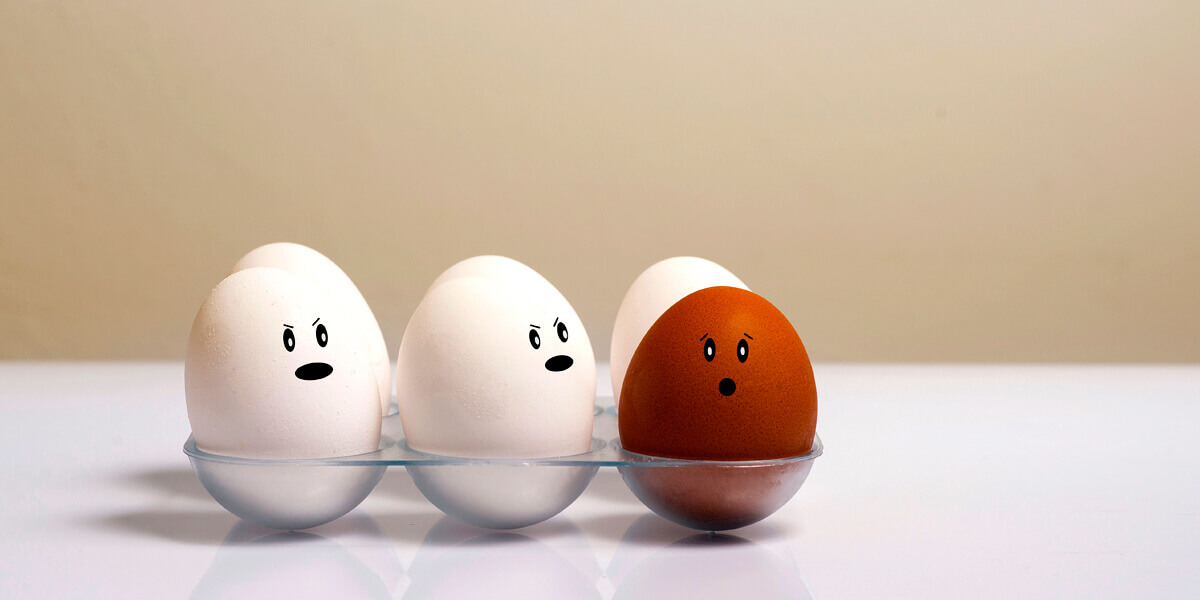According to a recent review of studies about sperm and testicular health, researchers found that sperm counts have dropped by almost 60% in just 40 years amongst men living in western societies. The review of testicular health studies seems to suggest that modern-day living is causing serious damage to men’s health and sperm count. But why is that? We have access to a good variety of food, healthcare, technology, exercise facilities, and overall we are living longer so what is responsible for such a dramatic decline in sperm counts, and how can we improve testicular health?
The reviewed studies revealed that there is no one simple answer and that in fact there are a plethora of potential culprits linked to declining sperm counts. For instance, there is strong evidence to suggest that pesticides, hormone-disrupting chemicals, diet, stress, smoking, and obesity could all be linked to the problem. These are also associated with a range of other illnesses such as testicular cancer and a general decline in testicular health. We can use this knowledge of harmful factors to improve testicular health.
Your sperm count
One of the main culprits for declining sperm counts in westernised societies shows a direct correlation with the rise in obesity rates. This is, in part, due to the fact that many of us now live more sedentary lives as the changing face of the workplace has seen many more people sat at desks rather than experiencing manual labour. However, the primary factor for the elevated obesity rates is the poor western diet, which is characterised by high intakes of red meat, processed meat, pre-packaged foods, butter, sugary sweets and snacks, fried foods, high-fat dairy products, eggs, refined grains, potatoes, high-sugar drinks and the proliferation of fast-food restaurants.
The results of several studies point to an increased likelihood of abnormal semen parameters among overweight men, and an elevated risk for subfertility among couples in which the male partner is obese. Obesity is, therefore, associated with a higher incidence of male factor infertility. Whilst there is not one clear indicator for the subfertility, there are several mechanisms that might account for the effect of obesity on male infertility, some directly and others indirectly, for instance, by inducing sleep apnea, or alterations in hormonal profiles such as raised estrogen levels and increased scrotal temperatures. These complications can ultimately manifest as impaired semen parameters. Impaired sperm also has various ways of presenting including decreased total sperm count, low concentration, and poor motility.
Smoking, drug use, and alcohol consumption can also be negative factors in testicular health. Tobacco smoking is remarkably common in most first-world countries, a disturbing perspective, given the well-known ill-effects on reproductive and sexual function as well as general health. Alcohol consumption is often considered socially acceptable, but its negative effects on gonadal function have been consistently reported in the last 30 years. Several studies have reported a variety of negative effects on male fertility following drug abuse, which is a worrying phenomenon considering that illicit drug consumption is on the rise in the west, most notably in younger people. While evidence in these regards is still far from solid, it is safe to assume that cessation of tobacco smoking, reducing alcohol consumption, and recreational drug addiction might be the best course of action for any couple trying to achieve pregnancy.
Testicular health
Other factors that have been indicated in testicular health are endocrine disruptors, which are linked to environmental pollutants. Endocrine disrupters (EDs) are chemicals that can mimic hormones. They bind to hormone receptors and even very small amounts can have a very big influence. Our hormonal systems are critical to overall body function and health, but when they are changed by EDs, potential outcomes include altered testicular function and suppression of testosterone synthesis. There are many EDs but some of the better-known ones include:
- PCBs and dioxins
Found in: Pesticides. Although we no longer use PCBs in the UK they are still in the soil and water table as they take many years to break down. - Flame retardants
Found in: Plastics, paint, furniture, electronics, food. - Dioxins
Found in: Meat. It can cause the demasculinisation of the male hypothalamus. Reduces male sexual behaviour. - Phthalates
Found in: Plastics, food packaging, cosmetics, cleaning agents. If a product has “fragrance” or “perfume” it probably contains phthalates. - BPA (bisphenol A)
Found in: Plastics, food packaging, the lining of many food/drink containers. May leach from the plastic into the food/drink at room temp and/or higher temperature. Exposure has been associated with cardiovascular disease, diabetes, sperm anomalies, reproductive organ dysfunction, and altered immunity.
Whilst the effects of endocrine disruptors is relatively small compared to the previously mentioned factors, when teamed with obesity and bad diet, there is an accumulative overall effect.
Testicular Health Tips
The great news is we can improve testicular health with relatively simple lifestyle changes. The even better news is that one of the best ways to improve your sperm is to have lots of sex because the more sexually active you are the more testosterone is produced. Some recent studies have shown that sperm quality may get better the more sex you have, and having daily sex is thought to help to clear damaged sperm from the testes so that they can be replaced by healthier, active sperm.
Watch what you eat; obesity is the main constituent in poor testicular health, so reducing weight to a healthy BMI can have a huge impact. Also, sperm count is affected by what you eat and drink. Food that contains vitamin C, vitamin D, vitamin E, calcium, zinc, and healthy fats are all thought to be helpful in raising your sperm count. Eating a diet made up of more white meat, legumes, whole grain cereals, nuts, and loads of fruit and vegetables will help. Whilst a healthy balanced diet is the best way to get our minerals and vitamins in an ideal world, in our fast-paced society that is not always easy. So you may find it more convenient to take supplements, in fact, some studies have shown that it might be helpful to take supplements alongside a healthy diet.
Taking exercise regularly boosts fertility by keeping body weight at normal levels and relieving stress and anxiety. However, too much exercise can lower your testosterone levels and sperm count. Too much exercise is a rare thing though, usually seen in people who run ultra-marathons or similar, so moderate daily exercise will stimulate testosterone which in turn stimulates Luteinising hormone, creating a positive feedback loop and helping to improve testicular health.
Stress can affect the hormones that make sperm. It can also stop you from wanting to have sex and stop you from enjoying it. Light exercise, relaxing, and spending time doing the activities you enjoy can all help to avoid stress. If possible, sharing your problems with your partner, friend, or GP can relieve a lot of stress and anxiety. Having problems trying to conceive can be a cause of stress in itself.
Not getting a good night’s sleep has been linked to low sperm counts. Sleeping well also helps to avoid stress and makes it easier to exercise and keep to a healthy diet.
Smokers are 30% more likely to have problems conceiving. The harmful ingredients in tobacco can kill sperm cells. It will help to cut back on the number of cigarettes you smoke or ideally stop completely. Smoking cannabis regularly can lower sperm count and the amount of seminal fluid that carries sperm. Taking cocaine and heroin can make you want to have sex less, and stop your sperm moving as much. These drugs can also create misshaped sperm that raise the possibility of miscarriage.
Keep your testicles cool; if your testicles become overheated it can affect how well they can make sperm, choosing showers over baths, and avoiding hot tubs, wear loose-fitting cotton boxers over tighter briefs of manmade fibres, and try not to use your laptop on your lap, as laptops can increase the temperature of your testicles.
About Dr Jeff Foster

A Men’s Health specialist and Medical Director and founder of H3 Health. I’m passionate about raising awareness of all aspects of Men’s Health, and heavily involved in both teaching and health promotion. I’m a committee member of the British Society of Sexual Medicine, and have been involved in writing the most recent national guidelines for testosterone deficiency in men.
Get in touch with Dr Jeff
If you are a prospective patient and wish to see Dr Jeff privately, then you can book an appointment via H3 Health (03309 120769 – National Rate). Alternatively if you are a member of the Media, then please use our contact form for media enquiries.





